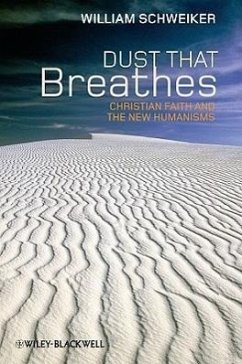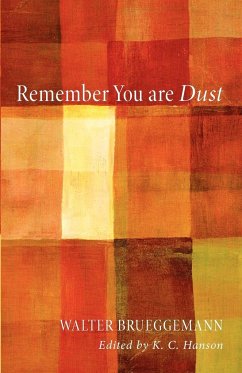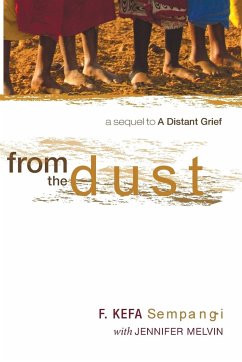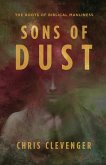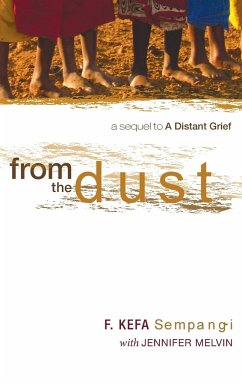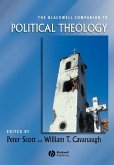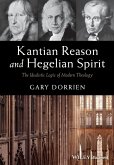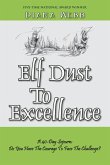This is an insightful and masterly look at the challenges and possibilities for Christian life in the contemporary world. Schweiker investigates Christianity's relevance in the global age and discusses how we can - and ought - to orient the life of faith. Schweiker begins with an exploration of the big religious themes of modern life, including religious identity in global times, the role of conscience, and current versions of humanism. He also engages some prominent contemporary philosophers and theologians who clarify the nature of faith by developing and contrasting it with ideas from other thinkers on shared topics of reflection. The book goes on to reflect on the themes of integrity, and theological and ethical perspectives of 'life'. The final section returns to the theme of 'religious humanism' with discussions of important recent work on Christian humanism. Dust that Breathes is unique in its appreciation of the ambiguity of religion, in its representations of the highest human achievements and the very worst of human actions. Schweiker concludes that a Christian outlook on life is still relevant, proposing an approach to Christian existence which is fully engaged with shared human concerns, and yet one which can meet the practical challenges and possibilities of the global age.
Hinweis: Dieser Artikel kann nur an eine deutsche Lieferadresse ausgeliefert werden.
Hinweis: Dieser Artikel kann nur an eine deutsche Lieferadresse ausgeliefert werden.
"The recovery of a chastened humanistic perspective and agenda is aglobal imperative. William Schweiker critically examines topicsthat have historically claimed the humanist title, weaving togethera vision that builds upon them yet goes well beyond. With skill andpassion he provides insight into what it means to live the life offaith today. This is a seminal text from an author who is at theforefront of the debate, deserving a wide readership."
--John W. de Gruchy, Emeritus Professor of ChristianStudies, University of Cape Town
"The Dust That Breathes reinstates religious humanism inthe light of the challenges of globalization, multiculturalism, andthe looming ecological catastrophe threatening our planet. Althoughinflected with Christian theological imagery and concepts,Schweiker's vision addresses all men and women of religious faithwho share an urgent sense of responsibility to secure the divinelycreated order and the dignity of human existence. It deserves toreceive wide attention."
--Paul Mendes-Flohr, Professor of Modern JewishThought, The Divinity School, University of Chicago
"In Dust that Breaths, the renowned North Americanethicist William Schweiker continues to portray the stance towardslife that he has made known as theological humanism. The reader istaken on a fascinating journey ... in a text that combines ahumanistic pathos with a thick theological anthropology,constructive use of particularly Christian sources, and moralrealism. It is a difficult and exciting endeavor. It is carried outwith the help of Schweiker's learnedness and his trademarkability to integrate a quest for intersubjectivity with opennessfor great complexity and ongoing change."
--Per Sundman, Faculty of Theology, UppsalaUniversity
--John W. de Gruchy, Emeritus Professor of ChristianStudies, University of Cape Town
"The Dust That Breathes reinstates religious humanism inthe light of the challenges of globalization, multiculturalism, andthe looming ecological catastrophe threatening our planet. Althoughinflected with Christian theological imagery and concepts,Schweiker's vision addresses all men and women of religious faithwho share an urgent sense of responsibility to secure the divinelycreated order and the dignity of human existence. It deserves toreceive wide attention."
--Paul Mendes-Flohr, Professor of Modern JewishThought, The Divinity School, University of Chicago
"In Dust that Breaths, the renowned North Americanethicist William Schweiker continues to portray the stance towardslife that he has made known as theological humanism. The reader istaken on a fascinating journey ... in a text that combines ahumanistic pathos with a thick theological anthropology,constructive use of particularly Christian sources, and moralrealism. It is a difficult and exciting endeavor. It is carried outwith the help of Schweiker's learnedness and his trademarkability to integrate a quest for intersubjectivity with opennessfor great complexity and ongoing change."
--Per Sundman, Faculty of Theology, UppsalaUniversity

